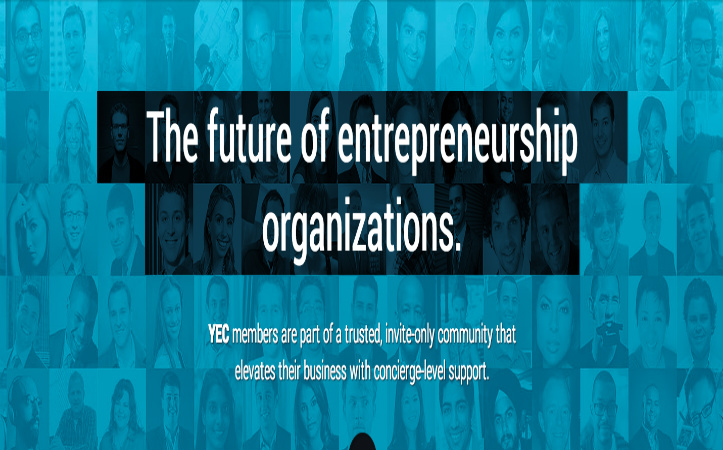In the next 5 years, what piece of technology do you think will be totally outdated for businesses to be using and why?
The following answers are provided by members of Young Entrepreneur Council (YEC), an invite-only organization comprised of the world’s most promising young entrepreneurs. In partnership with Citi, YEC recently launched StartupCollective, a free virtual mentorship program that helps millions of entrepreneurs start and grow businesses.
1. Email
 I think email is the single biggest time waster in companies today. There has been much innovation to make email more efficient; however, I believe that email is broken at its core. It just simply is not a productivity tool and I’m willing to bet that within five years it will be phased out for another tool or technology that provides the same level of communication in a more efficient manner. – Arian Radmand, CoachUp
I think email is the single biggest time waster in companies today. There has been much innovation to make email more efficient; however, I believe that email is broken at its core. It just simply is not a productivity tool and I’m willing to bet that within five years it will be phased out for another tool or technology that provides the same level of communication in a more efficient manner. – Arian Radmand, CoachUp
2. Desktops
 This is already happening, but it’s only going to accelerate. There are two facets to this change. One, the pace of technological advancement is making tools you can store in your bag or pocket powerful enough to be practical. Two, an even larger change, is that the notion of having one central place where work happens is becoming outdated. In other words, desktops are disappearing because desks are. – Brian Honigman, BrianHonigman.com
This is already happening, but it’s only going to accelerate. There are two facets to this change. One, the pace of technological advancement is making tools you can store in your bag or pocket powerful enough to be practical. Two, an even larger change, is that the notion of having one central place where work happens is becoming outdated. In other words, desktops are disappearing because desks are. – Brian Honigman, BrianHonigman.com
3. Mouses
 The mouse has been much the same since the advent of the computer. Sure, we have trackpads and wireless devices, but with keyboard shortcuts, the mouse is practically a useless appendage. There are signs of innovation on the horizon. For instance, the Mouse Box is a mouse with the entire computer built in. It’s still in the prototype phase, but it will be interesting to see where the idea goes. – Nicole Munoz, Start Ranking Now
The mouse has been much the same since the advent of the computer. Sure, we have trackpads and wireless devices, but with keyboard shortcuts, the mouse is practically a useless appendage. There are signs of innovation on the horizon. For instance, the Mouse Box is a mouse with the entire computer built in. It’s still in the prototype phase, but it will be interesting to see where the idea goes. – Nicole Munoz, Start Ranking Now
4. Disks
 The other day I asked a client for images. They said they had them on a disk. Five years from now, this won’t happen. Files will be shared without having to physically locate them, much like they are today using services like Dropbox. – Brett Farmiloe, Markitors
The other day I asked a client for images. They said they had them on a disk. Five years from now, this won’t happen. Files will be shared without having to physically locate them, much like they are today using services like Dropbox. – Brett Farmiloe, Markitors
5. Keyboards
 Businesses that still have physical offices in five years and are investing in technology for their employees will never need to buy another keyboard. More and more computing is done via touchscreen, and with predictive text getting better, the keyboard is more of a limitation than an asset. Businesses may even buy their employees tablets instead of laptops in the future. – Jared Brown, Hubstaff
Businesses that still have physical offices in five years and are investing in technology for their employees will never need to buy another keyboard. More and more computing is done via touchscreen, and with predictive text getting better, the keyboard is more of a limitation than an asset. Businesses may even buy their employees tablets instead of laptops in the future. – Jared Brown, Hubstaff
6. Excel
 If you want to present things clearly, numerous dashboard and analytics companies are making this much easier (and in fuve years we will be even further ahead) so Excel’s weak visualizations will no longer make sense. Meanwhile, if you want to do any real, deep analysis, packages like R are becoming ubiquitous and are significantly more powerful. Excel’s clunky, weak middle ground no longer makes sense. – Jack Hanlon, Kinetic Social
If you want to present things clearly, numerous dashboard and analytics companies are making this much easier (and in fuve years we will be even further ahead) so Excel’s weak visualizations will no longer make sense. Meanwhile, if you want to do any real, deep analysis, packages like R are becoming ubiquitous and are significantly more powerful. Excel’s clunky, weak middle ground no longer makes sense. – Jack Hanlon, Kinetic Social
7. Printers
 Everything will be soon be digitized. This means that you will no longer have to risk breaking your leg while running late to a meeting after making last-minute copies of a report for your team to look at together. Soon, the only type of printer we’ll be looking at in the office is a 3-D printer. – Firas Kittaneh, Amerisleep
Everything will be soon be digitized. This means that you will no longer have to risk breaking your leg while running late to a meeting after making last-minute copies of a report for your team to look at together. Soon, the only type of printer we’ll be looking at in the office is a 3-D printer. – Firas Kittaneh, Amerisleep
8. Landlines and Extensions
 Whilst there are many homes that still hold on to their landline (due to their stationary nature), mobile technology has rapidly grown to the extent that even today, many company mobile phones can be linked in a virtual switchboard. This fact gives clients accessibility regardless of geo-location, weather and time — early adopters of this mobile-cloud computing have an advantage on the competition. – Cody McLain, WireFuseMedia LLC
Whilst there are many homes that still hold on to their landline (due to their stationary nature), mobile technology has rapidly grown to the extent that even today, many company mobile phones can be linked in a virtual switchboard. This fact gives clients accessibility regardless of geo-location, weather and time — early adopters of this mobile-cloud computing have an advantage on the competition. – Cody McLain, WireFuseMedia LLC
9. Fax Machines
 I think the fax machine is rapidly becoming one of the most outdated items in a work environment. We have scanners and email, so we can send and receive documents easily. I think fax machines will die eventually, even if it’s not in the next five years. – Alfredo Atanacio, Uassist.ME
I think the fax machine is rapidly becoming one of the most outdated items in a work environment. We have scanners and email, so we can send and receive documents easily. I think fax machines will die eventually, even if it’s not in the next five years. – Alfredo Atanacio, Uassist.ME
10. Facebook
 Facebook is a necessary evil right now, but we won’t take the punishment much longer. Other social media platforms are much more enjoyable and casual, which is driving an exodus. People may still have their Facebook accounts, but frequent other applications that have less commitment, less noise and more focused content. This will cause businesses to focus social media marketing in different ways. – Joshua Waldron, Silencerco, LLC
Facebook is a necessary evil right now, but we won’t take the punishment much longer. Other social media platforms are much more enjoyable and casual, which is driving an exodus. People may still have their Facebook accounts, but frequent other applications that have less commitment, less noise and more focused content. This will cause businesses to focus social media marketing in different ways. – Joshua Waldron, Silencerco, LLC
11. Skype
 Today Skype is a great way to communicate with people around the world. But in five years with improvements in connectivity, Internet speeds and virtual reality, remote meetings will change dramatically. – Randy Rayess, VenturePact
Today Skype is a great way to communicate with people around the world. But in five years with improvements in connectivity, Internet speeds and virtual reality, remote meetings will change dramatically. – Randy Rayess, VenturePact
12. Scanners
 Scanners are already obsolete already, as are many other machine-based office products such as fax machines and printers. It is extremely rare to physically hold documents from customers and clients, and scanners will soon no longer be needed. With the use of email and sharing platforms like Google Docs, all documents will automatically be shared and will not have to be scanned in. –Miles Jennings, Recruiter.com
Scanners are already obsolete already, as are many other machine-based office products such as fax machines and printers. It is extremely rare to physically hold documents from customers and clients, and scanners will soon no longer be needed. With the use of email and sharing platforms like Google Docs, all documents will automatically be shared and will not have to be scanned in. –Miles Jennings, Recruiter.com
13. Servers
 Even today, more than 86 percent of mid-cap and large-cap business use in-house servers. While their usage is already diminishing rapidly due to cloud computing, in five years they will have completely perished. – Pratham Mittal, VenturePact
Even today, more than 86 percent of mid-cap and large-cap business use in-house servers. While their usage is already diminishing rapidly due to cloud computing, in five years they will have completely perished. – Pratham Mittal, VenturePact









